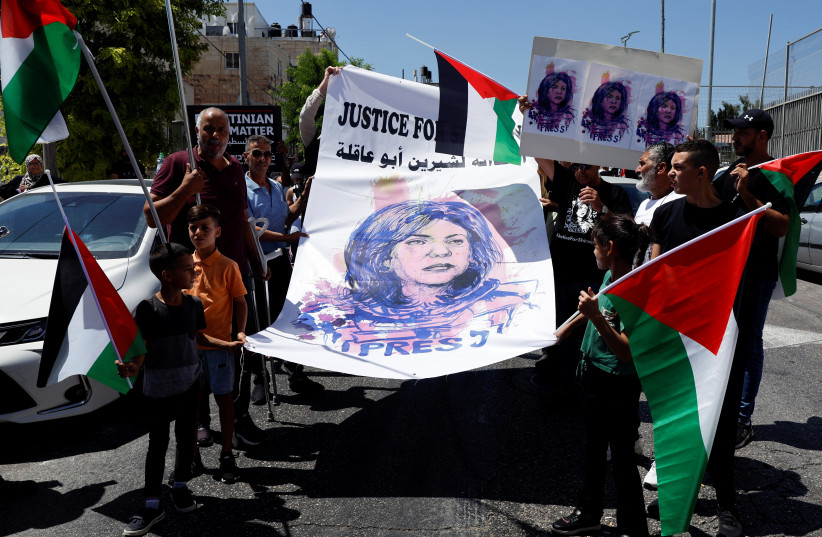The US administration and the Israeli government are at odds, once again.
The current confrontation comes after the IDF released the findings from its investigation into the death of Al Jazeera Palestinian journalist Shireen Abu Akleh, concluding that she was likely killed by IDF fire.
The Americans chose to focus on a specific issue: the IDF rules of engagement.
Deputy State Department spokesperson Vedant Patel said on Tuesday that the US is “going to continue to press our Israeli partners to closely review its policies and practices on rules of engagement and consider additional steps to mitigate the risk of civilian harm, protect journalists and prevent similar tragedies in the future.”
This remark pressed a sensitive button for Israelis.

Rules of engagement made headlines in the past few years in several instances. The most important one was when Border Policeman St.-Sgt. Barel Hadaria Shmueli was killed by a Palestinian gunman who shot him through a firing hole in the security barrier along the Gaza border. The main criticism after Shmueli’s death was that the rules of engagement were too soft and did not allow him to respond.
The rules-of-engagement debate, just like everything that has to do with the behavior of soldiers, is sensitive because it is perceived as telling “our boys” what to do and how to defend themselves.
Israeli politicians respond to the US
Prime Minister Yair Lapid and Defense Minister Benny Gantz expressed these feelings in their statements against the US remarks.
“No one will dictate our live-fire instructions to us when we are fighting for our lives,” Lapid said on Wednesday.
“I will not let a fighter in the IDF who defended his life under fire from terrorists be prosecuted just so that we will be applauded abroad.”
Prime Minister Yair Lapid
Gantz said that “the IDF’s Chief of the General Staff, and he alone, determines and will continue to determine the rules of engagement in accordance with our operational needs and values of the IDF. These instructions are implemented in a strict manner by soldiers and their commanders.”
He then said that “there has not been, and there will not be any political involvement in the matter. IDF troops have my full backing in their mission to protect the citizens of Israel.”
On social media, some Israelis pointed at “the US hypocrisy,” and mentioned the killing of innocent civilians in places such as Iraq and Afghanistan.
While that might be true, we need to remind ourselves how the Americans view the situation: A journalist, wearing full gear clearly marked “PRESS,” who is also their citizen, was killed.
In their eyes, the battle didn’t take place in a war zone but rather in a civilian neighborhood in a territory that most of the world considers occupied and under military control.
They don’t know the IDF Code of Ethics, nor that our soldiers dedicate a considerable amount of time during basic training to learn how to think long and hard before pulling the trigger. They also don’t know that IDF soldiers are taught at the very beginning of their service that they have the right – and the obligation – to refuse an order that would lead to the harming of innocent people.
What happened with Abu Akleh was tragic and devastating. A journalist should not be killed, even in a combat zone.
The IDF must draw lessons from the investigation and see how to avoid such outcomes in the future.
Unfortunately, such incidents happen, especially in complicated places like Judea and Samaria. And while the American criticism – especially when considering that Abu Akleh held US citizenship – is expected, the IDF does not need intervention when it comes to its rules of engagement.
No military in the world goes to the lengths that Israel does to spare civilian casualties. Look at recent Gaza operations when Israel called homes and buildings and gave known Hamas operatives time to evacuate before attacking.
Look at the way the IDF has prosecuted soldiers in the past for violating these rules and look at the way this country sanctifies lives – whether by opening a field hospital for Syrians or in Ukraine.
This is the Israeli way of fighting. We have a conflict and we need to do better. What we don’t need is to be told how to defend ourselves.
